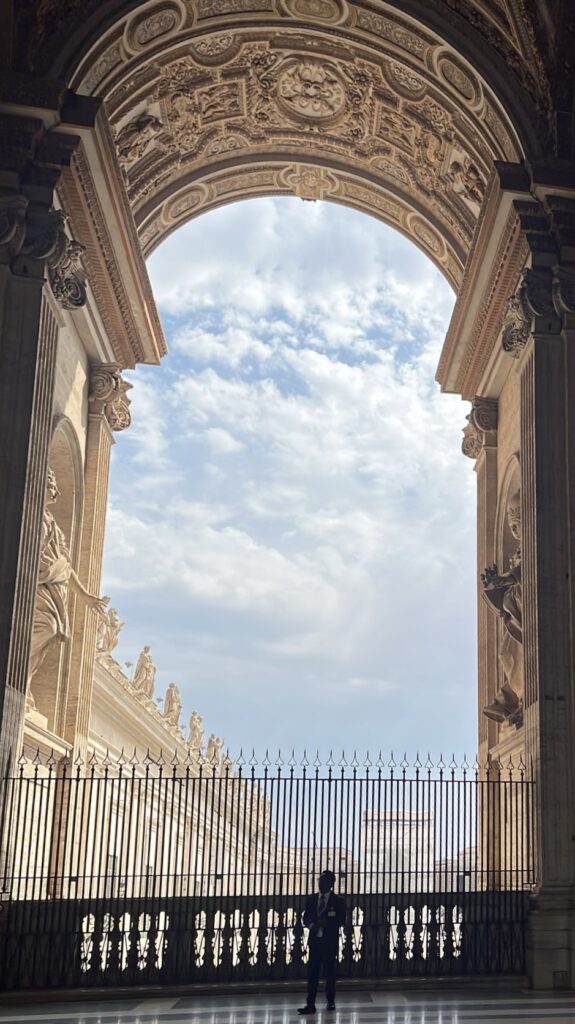Jubilee definition and meanings
Italian version below*
The origins of Jubilee are to be found in the Old Testament.
One of the most characteristic observances of Jewish law was the Sabbath rest, the day blessed and sanctified by God himself during which men and beasts, free men and servants, Jews and foreigners who found themselves inside the gates of the Israelite city had to abstain from any type of work in imitation of the Lord who created all in six days and rested on the seventh day.
Even the earth had a Sabbath of rest by God’s law, which fell every seven years; during this year of rest, called the “sabbatical,” the people of Israel learned to recognize their Lord as the only true master of the earth.
In addition to celebrating the 7th day and the 7th year, the Israelites were legally required to celebrate another year of rest at the end of the 7 weeks of years, that is, after 49 years: the year of the Jubilee.
The word Jubilee comes from Hebrew Jubilee which literally means “he who leads in reference to the ram who “led the flock”.
In the text of Leviticus (third book of the Jewish Torah and the Christian Bible) the trumpet that announced the Jubilee is defined as first Shofar and then Jubilee.
The word Shofar indicates the curved trumpet made with an animal horn distinct from the long and straight silver trumpets used in liturgical solemnities.
Jubilee, however, is an archaic name used to indicate first the ram, then the trumpet made with an animal horn (ram’s horn), and finally the sound it emitted to announce the holiday.
In the New Testament, Jesus presents himself as the one who brings to completion the ancient Jubilee having come to preach “the year of grace of the Lord” (Isaiah).
The Jubilee also called Holy Year is the year of remission of sins, of hope, and sacramental penance.
There are two types of Jubilee, the Ordinary one which occurs every 25 years and the Extraordinary one celebrated for events of particular importance.
The 2025 Jubilee is the 25th ordinary Jubilee in the history of the church.
Pope Francis read the Bull of the Indiction, Spes non Confundit on May 9, 2024.
The opening of the Holy Door in St. Peter Basilica which will be considered the beginning of the Jubilee will be on December 24th.
All rights reserved*
Follow me on IG: selenia_eyeonart

Cosa indica il termine Giubileo?
Le origini del Giubileo sono da ricercarsi nell’Antico Testamento.
Una delle più caratteristiche osservanze della Legge ebraica era il riposo del Sabato, il giorno da Dio stesso benedetto e santificato, durante il quale uomini e bestie, liberi e servi, ebrei e forestieri che si trovavano dentro le porte della città israelitica, dovevano astenersi da qualsiasi tipo di lavoro a imitazione del Signore che creò tutto in 6 giorni e al settimo giorno riposò.
Anche la terra aveva per legge di Dio il suo sabato di riposo che cadeva ogni 7 anni; durante questo anno di riposo chiamato “sabatico” il popolo di Israele imparava a riconoscere nel suo Signore l’unico vero padrone della terra.
Oltre a festeggiare il 7° giorno ed il 7° anno gli israeliti erano tenuti per legge a celebrare un altro anno di riposo alla fine delle 7 settimane di anni, cioè dopo 49 anni: l’anno del Giubileo.
Il termine Giubileo deriva dall’ebraico Yobel che letteralmente significa “colui che conduce”, in riferimento al montone che “conduceva il gregge”.
Nel testo del Levitico (terzo libro della Torah Ebraica e della Bibbia Cristiana) la tromba che annunziava il Giubileo è definita prima Shofar e poi Yobel.
Il termine Shofar indica la tromba ricurva fatta con un corno di animale distinta dalle lunghe e dritte trombe d’argento adoperate nelle solennità liturgiche.
Yobel, invece, è un nome arcaico passato ad indicare prima il montone poi la tromba fatta con un corno di animale (corno di ariete) ed infine il suono che essa emetteva per annunciare la festività.
Nel Nuovo Testamento Gesù si presenta come colui che porta a compimento l’antico Giubileo, essendo venuto a predicare “l’anno di Grazie del Signore” (Isaia).
Il Giubileo detto anche Anno Santo, è l’anno della remissione dei peccati, della speranza e della penitenza sacramentale.
Esistono due tipi di Giubileo: quello Ordinario che cade ogni 25 anni e quello Straordinario, celebrato per eventi di particolare importanza.
Il giubileo del 2025 è il 25esimo Giubileo ordinario della storia della chiesa.
Papa Francesco ha letto la Bolla Spes non confundit il 9 Maggio del 2024. L’Apertura della Porta Santa nella Basilica di San Pietro avverrà il 24 Dicembre 2024.
Giubileo Sito Ufficiale, clicca qui
Tutti i diritti sono riservati. E’ vietata qualsiasi utilizzazione, totale o parziale, dei contenuti inseriti nel presente portale, ivi inclusa la memorizzazione, riproduzione, rielaborazione, diffusione o distribuzione dei contenuti stessi mediante qualunque piattaforma tecnologica, supporto o rete telematica, senza previa autorizzazione scritta di Selenia Morgillo.